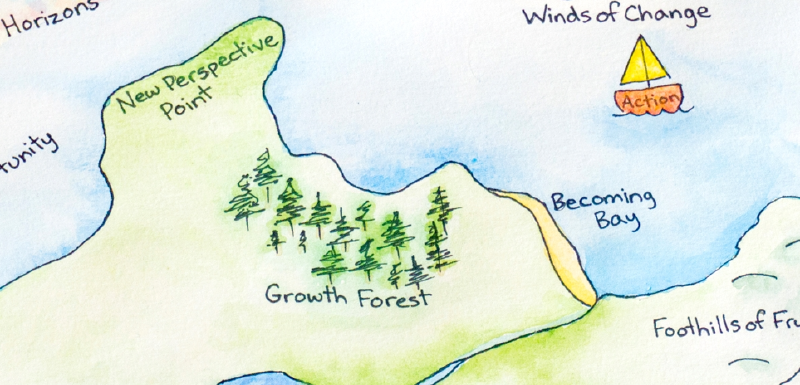I finished UBC’s Career Coaching class a few months ago. It was overall a great experience and I feel like writing something about it. At the beginning, I was completely a newbie, no idea where to start. As the course moved along, I quickly learned the ropes. Towards the end, it started to feel like play. The idea of coaching, and the freestyle approach taken in the class came natural to me. The takeaway I want to write about is the coaching way. I think of it as a general attitude that applies outside of coaching sessions, to work and life as well. That could involve the interaction with other people, or simply the dialogue with oneself.
The coaching way starts with listening. I initially thought that was easy. Just sit and listen, how hard could that be. But really? Am I listening to formulate my rebuttal to convince others my opinions, or am I listening to understand their experiences? How many times I feel eager to say things like, I’ve been there, let me share my experience in the name of emphasizing with you. That may sound supportive on the surface, but it’s actually shifting the focus from the other person to myself. So the first thing I learned with the coaching way is that an active listener leads with curiosity, compassion and authenticity. The listener should maintain the focus on the speaker. It’s a way to genuinely understand, and to connect without an alternative motive. That still sounds pretty simple, but how exactly am I doing on that?
While I was getting started in coaching, I was a bit lost initially because the course didn’t teach us anything regarding how to structure a coaching session, probably on purpose. I remember asking the question “So, how do we get started? What are the opening lines that I can use?”. “Just say hello”, that was the answer I was given. Well, not very helpful, was it? Any case, without knowing better, I started my first session with my client. After a number of practices, I started to see the point. Each session can go very differently, and most of the time, it’s unpredictable. The most important part is to get myself to be there with the client. Having a presumed structure, or goal, or plan ahead of the session doesn’t seem necessary, and may even distract me from active listening. This could be counter-intuitive since there’s often an agenda for business type meetings, and participants often prepare ahead of time. Maybe a good analogy for coaching is jazzing. It doesn’t mean not taking things seriously, but rather it means improvising when performing. Similar analogies are sports games like soccer. Athletes couldn’t predict the games, but they still practice and work on their skills. For coaching, one of the most beautiful moments is when the coach and the client come up with something insightful spontaneously. I’m quite thankful that I learned the type of coaching I like to learn. We know things are governed by nature’s law, but nobody can predict the future since our physical world is chaotic. In some way we are all improvising life. Why not loosen up and adapt? I’m sure unexpected fun is more enjoyable then the planned ones.
Another thing that struck me is that coaches see clients as whole, capable and resourceful people. It’s just that sometimes clients may be having a hard time, and the coaches are there to accompany them along the journey while they overcome their obstacles. Coaches can not fix things directly. The vision and resolve must come from the within. In one of my meetings with the instructor, I asked him what shall I do to provide most value to the client, and he told me to just let the client do the work, coaches are there to provide stimulus. I like this perspective, and I think the other side of it is to encourage the clients to accept the responsibility of moving themselves from where they are now to where they want to be. In other parts of life or work, this could relate to mentorship, parenting and even self-leadership.
Last but not the least, the coaching way can be a way to live our inner life too. Simply replacing client by self, most of the teaching in coaching still makes a lot of sense.
